Student teachers and primary school trainees from the “EU goes School: Teachers as EU Ambassadors (EGS-LAB)” project got to know various extracurricular learning locations in Alsace during the week of November 6-10, 2023. As part of the EU funding, the Munich Center for Teacher Training (MZL) of the Ludwig-Maximilians-University Munich (LMU) in cooperation with the Chair for Political Education and Didactics for social studies at the Department of Political Science at LMU (GSI) was able to further expand the project “EU goes School: Teachers as EU-Ambassadors (EGS-LAB)”. EGS-LAB aims to enable (student) teachers to reflect on and develop their attitudes, knowledge and teaching skills about Europe and the EU in order to develop their own European identity and that of their students in high-quality lessons. As part of the seminar “EU goes School! How can the EU be taught in the classroom?” organized by the GSI and in cooperation with the MZL, an excursion to Strasbourg was planned and carried out. The aim of the excursion was to learn about the history of Alsace and the associated connections between the two neighboring countries Germany and France as well as the basic European idea. In addition, a selection of extracurricular learning locations was visited and reflected on with regard to the didactic added value for the students.
Day 1: Maginot Line fortifications and Niederbronn-les-Bains war cemetery
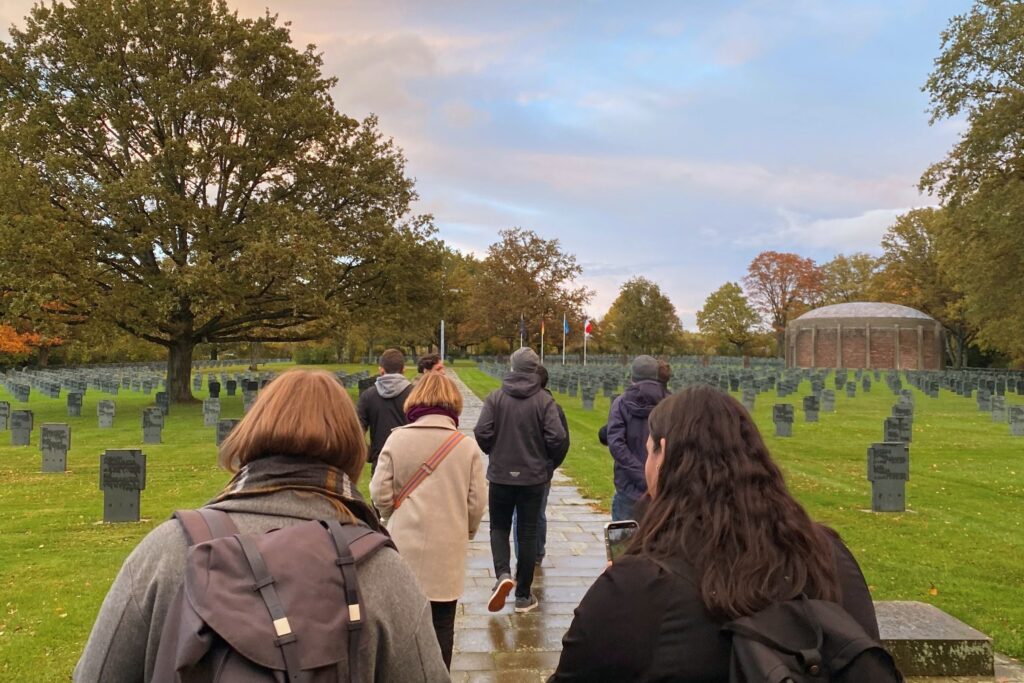
The excursion started on Monday morning at the LMU fountain, from where the group took the bus to Strasbourg. On the way there, they made a first stop at the Franco-German border in Lembach. There, the seminar participants visited a fortification of the Maginot Line, which was once intended to protect France from attacks from neighboring countries. During a two-hour guided tour, they were given an insight into the history and construction of this bunker complex. The tour continued with a visit to the Niederbronn-les Bains war cemetery. After an introduction to the commemorative work and a short tour of the cemetery, the employee discussed various war fates from 1939 to 1945. Using memoirs, letters and similar material left by relatives, the war cemetery aims to provide information about the Nazi regime and the Second World War and make life at that time more comprehensible. The fates of the young soldiers depicted had a lasting effect on the excursion participants. These first two items on the program of the trip already impressively demonstrated the importance of the European idea in view of the unprecedented decades of peace in the countries of the EU. The group finally reached Strasbourg in the evening and rounded off the day with dinner together.
Day 2: City tour and European School Strasbourg
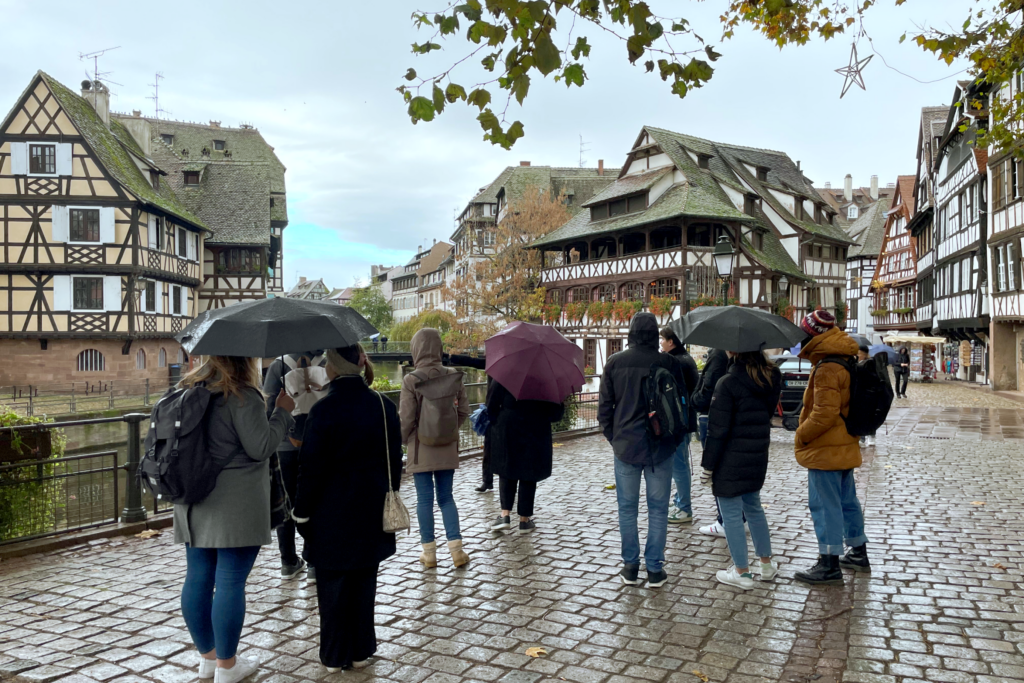
The students and trainee teachers were able to explore Strasbourg itself the following morning during a tour of the old town and during free lunch time. In the afternoon, a visit to the European School of Strasbourg was on the agenda. The group was first welcomed by the director of the elementary school, given a tour of the building and then introduced to the school system by the principal: In cooperation with the kindergarten, pre-school, primary and secondary levels, around 1,200 pupils at the European School learn according to the EU concept and complete their school career with the European Baccalaureate. During the presentation and the subsequent exchange with the German-speaking staff, the (student) teachers were able to ask many questions and gain an insight into working as a teacher at a European school, which in turn may be of interest for their own professional careers. The evening was spent together over a typical local dinner.
Day 3: Natzweiler Struthof Concentration Camp Memorial and Alsace-Moselle Memorial
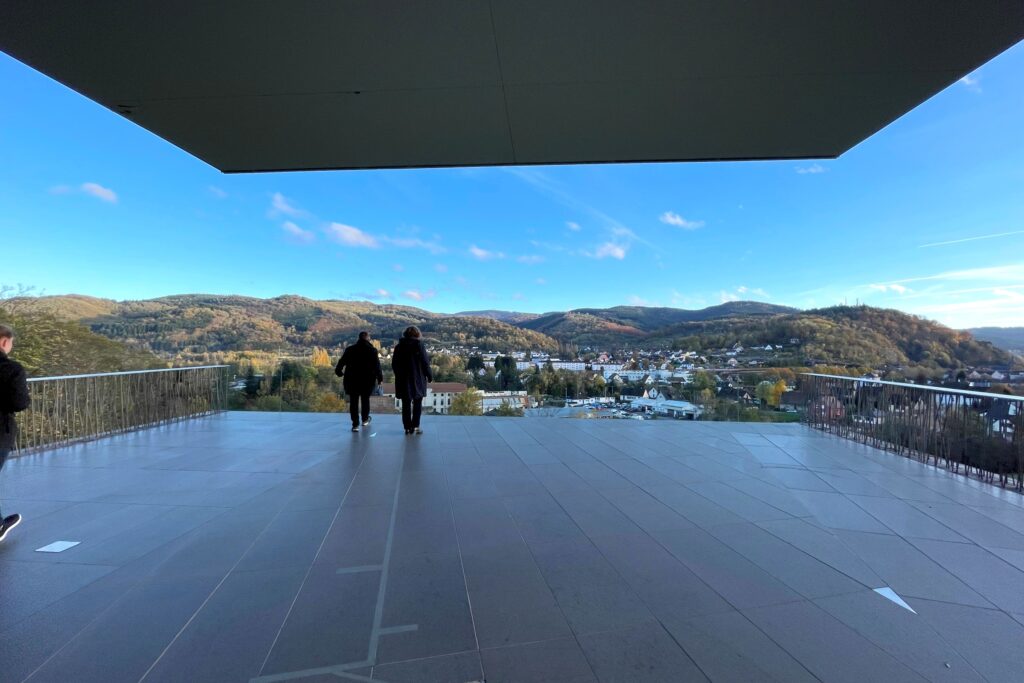
On Wednesday, they went to the Natzweiler Struthof concentration camp memorial. During the tour of the museum, camp, crematorium and gas chamber, the seminar participants were given information about the Holocaust and the Second World War. With the help of an audio guide, they were able to explore the topic at their own pace and come to terms with the very moving information. The group then visited the Alsace-Moselle Memorial in Schirmeck, which shows the history of the people of Alsace and Moselle from the Franco-Prussian War to the present day. The tour was accompanied by an app, so that the various information on the history of Alsace was presented in a media format. Once again, the program of the excursion showed the horror that wars have brought to Europe in the past. The memorial, which also deals with the European unification process, also illustrated the outstanding achievements of the EU and the challenges it has faced in recent years.
Day 4: Council of Europe and European Parliament
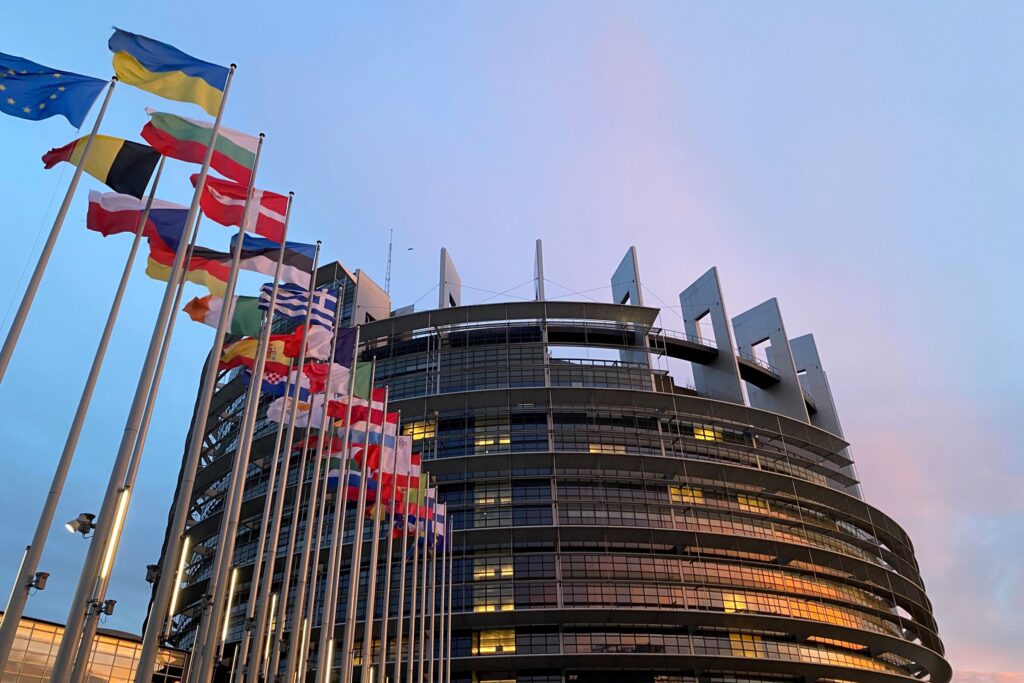
Thursday started with a visit to the Council of Europe and a discussion with an education expert, who took the time to answer the numerous questions from the students and trainee teachers. His colleague concluded the visit with a general insight into the work of the Council of Europe. After lunch, the group went to the European Parliament, which had prepared a role-play lasting several hours for the group. The participants embodied a randomly assigned country that belonged to one of four political groups. Within two fictitious bills, they were to experience the work of representatives at first hand and vote on the bills after various information and discussion phases. Finally, they visited the plenary chamber together and were given general information on how the EU Parliament works. Back at the hotel, the experiences and impressions of the excursion so far were reflected on together (in terms of didactics). The students and trainee teachers noted an increase in their specialist knowledge and skills in the field of political education, which they in turn related to their usefulness in everyday school life: The aim is to train teacher skills, as these precede student skills. This is also a lifelong learning process with the goal of political maturity, which therefore also works across schools and subjects. The trainee teachers in particular were able to share their practical experience with the others on this point and offer support for the creation of further teaching units.
Day 5: Franco-German trenches and the “Vieil Armand” memorial at Hartmannswillerkopf
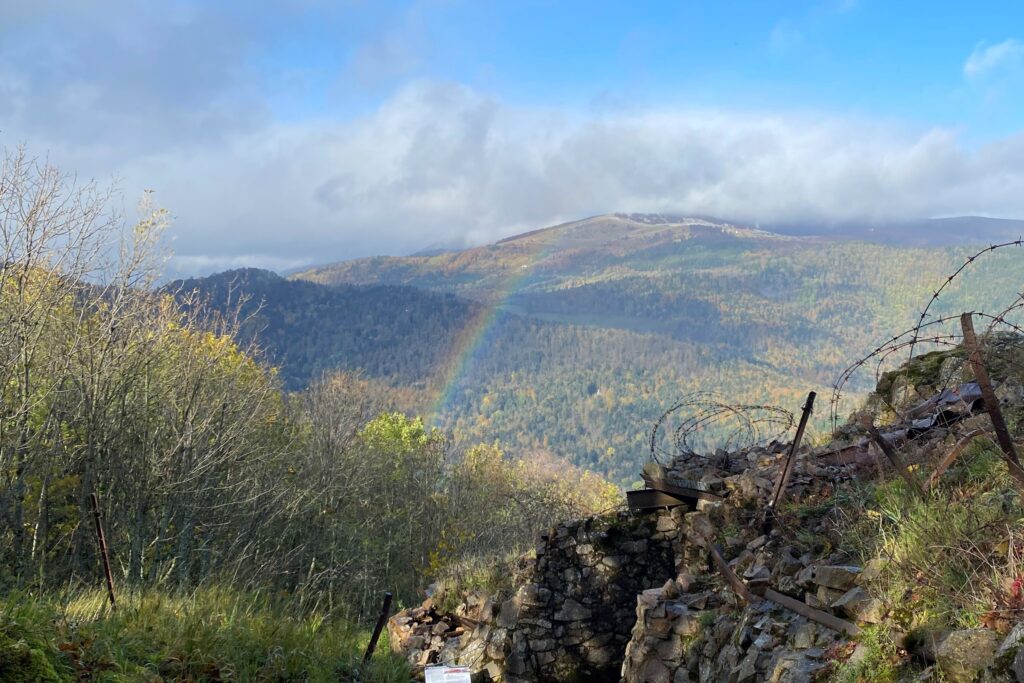
On the last day, the participants finally visited the “Vieil Armand” memorial at Hartmannswillerkopf and were given a guided tour of the Franco-German trenches. The excursion came to a successful conclusion with a visit to the Franco-German Historial and the reconciliation between Germany and France that it represented, before returning to Munich.
